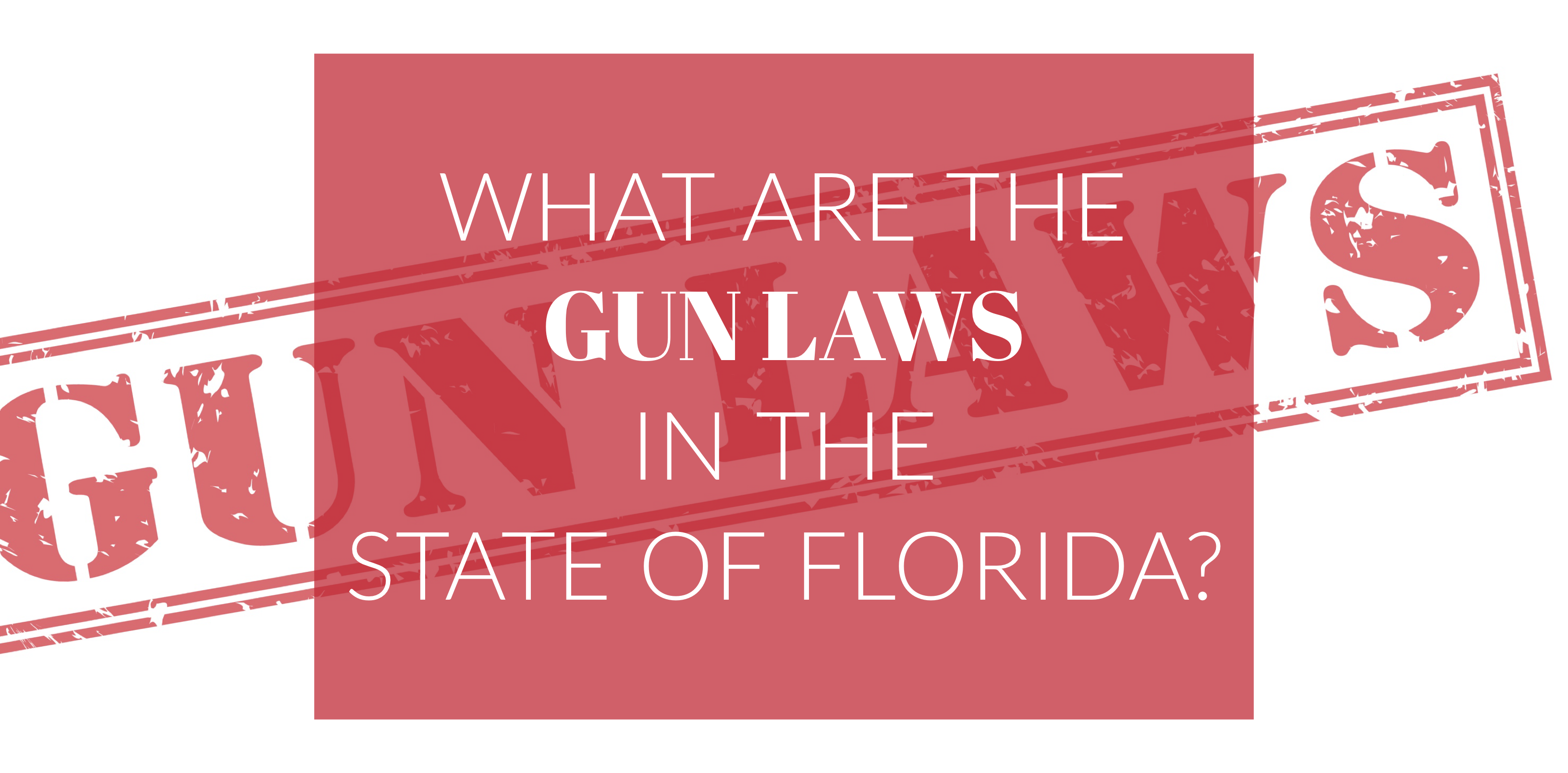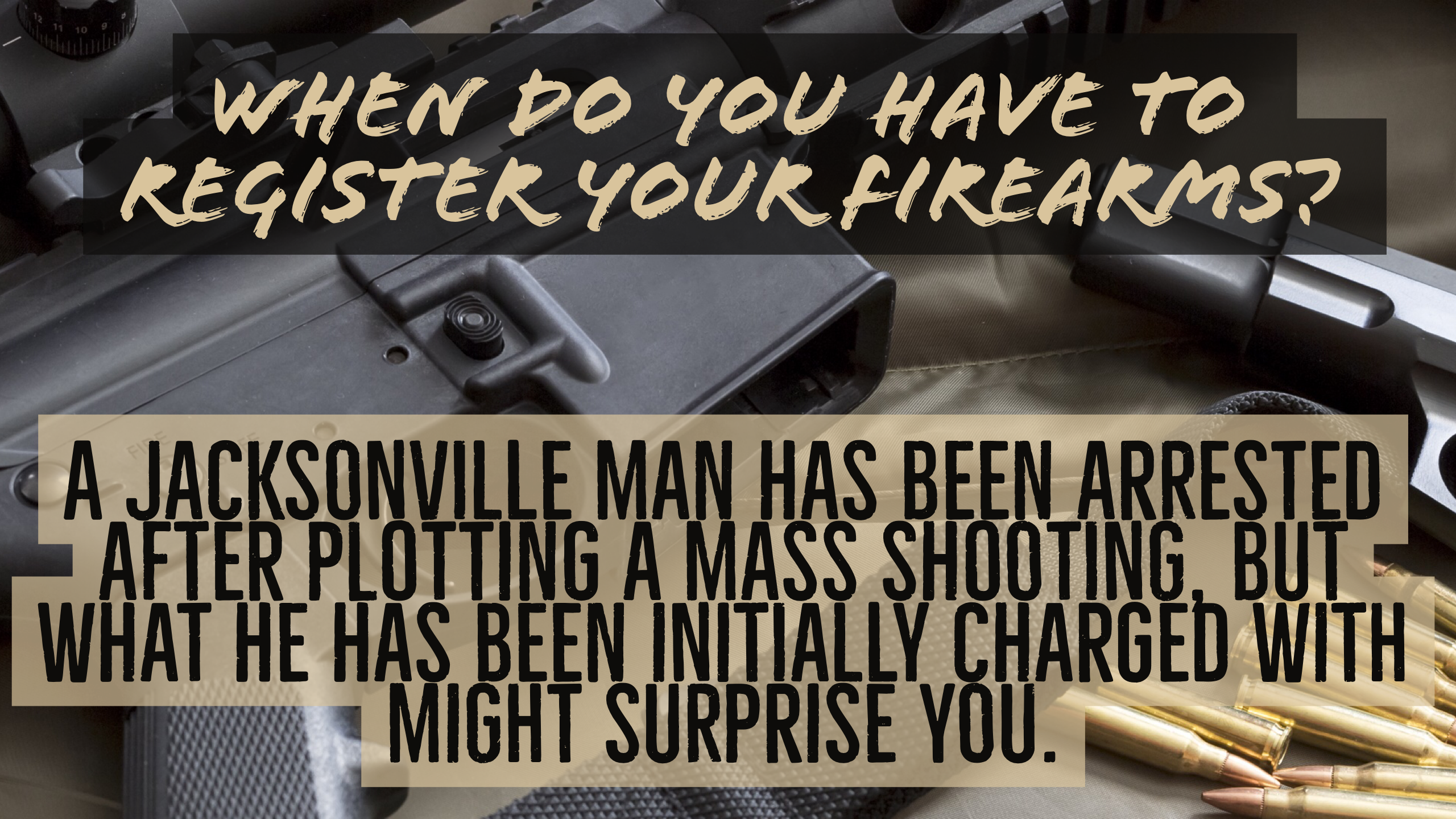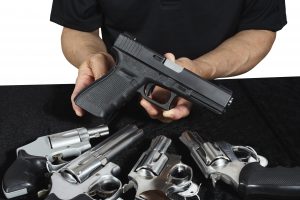That is kind of a convoluted title to the blog post, but essentially the police in this case tried to use the observation of a concealed handgun in the defendant’s vehicle as a legal basis to search the vehicle, find the concealed firearm and then charge the defendant with carrying a concealed firearm. It didn’t work. In Florida, it is a third degree felony to carry a concealed firearm on or about one’s person. That is a pretty general and somewhat vague law, but how this usually plays out is the police stop a vehicle, find some reason to search it and then find a gun that they say was not openly visible. This can also apply to a person carrying a firearm on his person that is not openly displayed and visible. In order for a person to carry a concealed firearm in his vehicle or otherwise, he would need to apply for and receive a concealed firearms permit from the state.
In this case near Jacksonville, Florida, the police officer approached a parked vehicle in a hotel parking lot that had a concealed license plate. When he approached the vehicle, he said he saw the defendant had the butt of a gun sticking out of his waistband. The police officer detained the defendant and then arrested him once it was determined that the defendant did not have a license to carry a concealed firearm. He was charged with carrying a concealed firearm.
The criminal defense lawyer filed a motion to suppress the evidence of the gun arguing that the police officer did not have a legal basis to detain the defendant and then search him. The police officer testified that he saw that the defendant was armed, but he could not articulate any evidence of criminal activity since the officer did not know whether or not the defendant had a concealed firearms permit at the time of the detention. The key here is that the police have to have some specific indication that the defendant is involved in criminal activity in order to detain and search a person. Having a gun is not necessarily a crime. Having a concealed firearm is not a crime unless the person does not have a license for it, which the police officer did not know at the time. Without some reason to believe the defendant was doing something illegal, there was no legal basis for the detention and search. What the police officer could have done, once he saw the concealed firearm, was ask the suspect if he had a license for it. If the defendant chose to answer and said no, then there would have been sufficient evidence to detain him and arrest him. Or, if the defendant had been doing something dangerous with the gun, like waving it at someone or threatening someone, that would have been sufficient to detain the person and possibly arrest him. However, the simple fact of having a gun may not be enough for a detention or arrest in Florida.
 Jacksonville Criminal Lawyer Blog
Jacksonville Criminal Lawyer Blog


 There has been a lot of talk about new legislation regarding firearms, but what is the current status of the law as it relates to guns? Criminal defense lawyers know that there are plenty of firearm statutes with extreme high range of punishments already on the books in Florida. These laws are coupled with very long minimum mandatory sentences. There are also many different and often overlapping state and federal laws regulating all aspects of firearm possession, use, distribution, manufacturing, and more. This blog will lay out some of the more common firearm statutes in the State of Florida.
There has been a lot of talk about new legislation regarding firearms, but what is the current status of the law as it relates to guns? Criminal defense lawyers know that there are plenty of firearm statutes with extreme high range of punishments already on the books in Florida. These laws are coupled with very long minimum mandatory sentences. There are also many different and often overlapping state and federal laws regulating all aspects of firearm possession, use, distribution, manufacturing, and more. This blog will lay out some of the more common firearm statutes in the State of Florida.
 In 2009, Bruce Abramski, a former police officer, walked into a local gun shop and purchased a firearm for his uncle. His uncle sent him $400 to make the purchase. Under federal law, the firearm dealer was required to record the buyer’s name, age and place of residence. Abramski filled out ATF Form 4473 stating that he was the actual purchaser. Abramski walked out and immediately transferred the firearm to his uncle. Both Abramski and his uncle were eligible to lawfully purchase a firearm from a federally licensed firearm dealer. Neither one was a convicted felon or otherwise a prohibited person.
In 2009, Bruce Abramski, a former police officer, walked into a local gun shop and purchased a firearm for his uncle. His uncle sent him $400 to make the purchase. Under federal law, the firearm dealer was required to record the buyer’s name, age and place of residence. Abramski filled out ATF Form 4473 stating that he was the actual purchaser. Abramski walked out and immediately transferred the firearm to his uncle. Both Abramski and his uncle were eligible to lawfully purchase a firearm from a federally licensed firearm dealer. Neither one was a convicted felon or otherwise a prohibited person.